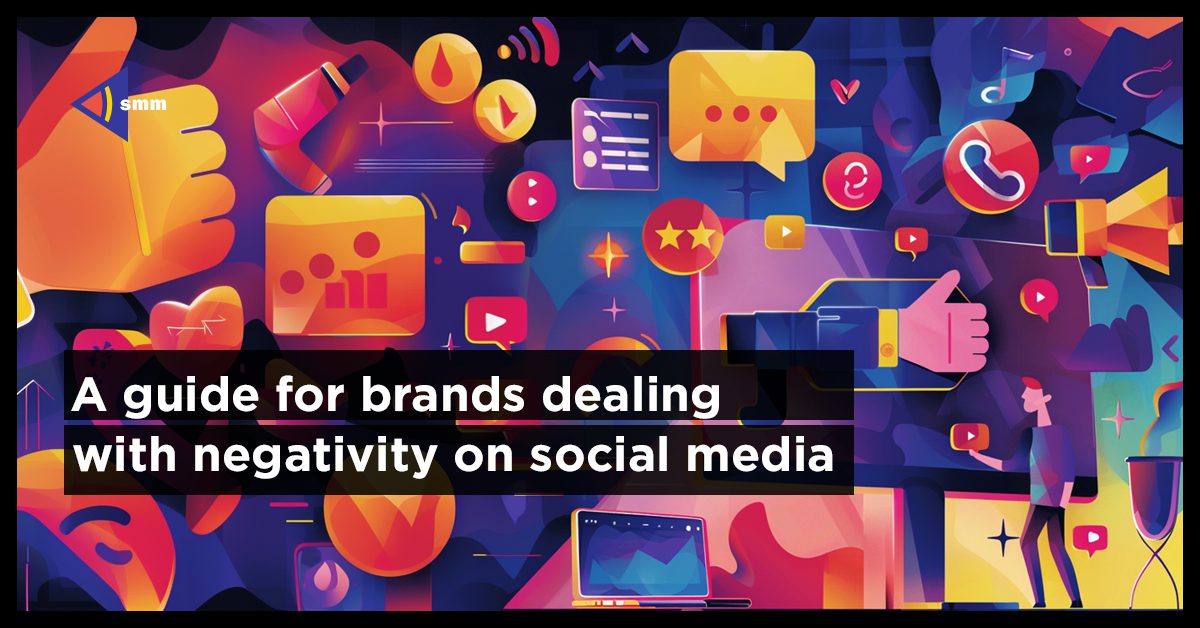How to deal with brand hate on social networks
What behavioral strategy should companies adopt when facing online hate? Effective recommendations and proven tactics that yield results.
In contemporary times, social media platforms serve as a prominent platform for societal opinions. It’s no surprise, as online consumer feedback significantly influences a company’s overall reputation. While positive comments may not pose issues, it’s crucial to adeptly handle negative feedback to avoid serious repercussions such as cancel culture.
Before delving into how to address online hate, it’s essential to define what constitutes it.
What Constitutes Brand Hate Online
Online hate encompasses any speech or expression that fosters or advocates hatred, disgust or dislike towards any entity or individual.
Typically, hate manifests as unconstructive criticism, finding refuge within the anonymity of social networks and the internet at large. Essentially, hate thrives as consequence-free animosity, allowing aggressors to evade accountability for their words.
Signs of Hate on social networks
This phenomenon exhibits distinct characteristics, including:
- Lack of constructiveness or insufficient constructive criticism.
- Appeal to emotions over logic.
- Personal attacks.
- Unethical behavior.
- Employment of manipulative tactics.
These indicators highlight various reasons behind criticisms of a company or brand:
- Publications inadvertently attract the ire of a hater.
- The hater identifies aspects of the brand that personally offend them, prompting angry reactions.
- Trolls, a specific category of web users, intentionally post offensive content to instigate controversy, functioning as provocateurs.
- The company’s missteps contribute to criticism directed towards it.
However, is hate always detrimental? Not necessarily. Consider the following:
- Hate can drive quality improvement efforts by highlighting consumer preferences and dislikes.
- Skillful handling of criticism can enhance customer loyalty, demonstrating responsiveness to unforeseen issues.
- Negative publicity can paradoxically serve as effective promotion, especially for brands emphasizing boldness.
- Any mention of a company online serves as a form of advertising, potentially expanding its reach and visibility.
These positive aspects of hate only prove beneficial if addressed adeptly, avoiding missteps that could cause irreversible harm.
How Brands Should Respond to Criticism on social networks
Criticism that tarnishes a business’s reputation can escalate into a crisis, necessitating a comprehensive approach to resolution. This involves not only addressing individual comments but also implementing additional measures to rectify the situation.
The primary responsibility of a company owner is to uphold their dignity while safeguarding the honor of their brand. This isn’t merely a matter of pride but rather a means of restoring the company’s tarnished reputation.
Providing an official response to the issue at hand is crucial. However, this must be approached with great care. Ignoring accusations entirely is the worst possible reaction, as it fosters a perception of indifference. Lack of engagement from the brand on social media platforms only exacerbates the negativity surrounding the situation.
Simultaneously, the business’s stance on the matter must be meticulously considered. It’s imperative to avoid scenarios where the brand owner engages in emotional disputes with commenters or where hastily made decisions by company management worsen the situation.
A case in point is the response by H&M in 2018 when the company faced accusations of racism over an insensitive product photo. The image depicted a dark-skinned boy wearing a hoodie emblazoned with the phrase “Coolest monkey in the jungle.” The ensuing uproar prompted swift action from the brand’s management: they issued an apology, removed the offending photo, and discontinued the hoodie from sale altogether.

On the Facebook page of Nova Poshta, there are also disputes about the quality of service under every post. Here is an example of the correct reaction to the feedback of an unsatisfied customer.


Here’s another example of how important it is to stay calm when dealing with customers who have lost their trust in you.

Be Ready to Apologize When the Company Is at Fault
If the company is indeed responsible for an issue, it’s crucial to offer a sincere apology and outline the steps taken to address the problem. Consider crafting a response that aims to improve the overall perception of the brand.
For instance, a message like “Sorry, best regards, [Company Name]…” may come across as less effective compared to a more detailed and empathetic approach:
“Good afternoon, [Name]! Thank you for sharing your feedback, and we sincerely apologize for any inconvenience caused. Rest assured, we’ve addressed this matter with our team and are committed to preventing similar incidents in the future. We’ve initiated a refund for your order, which should reflect in your account within three business days. Additionally, we’ve provided a promo code for a discount, already active on your account. Once again, we apologize for any inconvenience caused by this lapse in service.”
This approach applies even when a critic offers constructive feedback. Responding to such comments demonstrates a commitment to listening to customer concerns and can positively influence other users’ perceptions of the brand. A simple acknowledgment like “Thank you! We’ll take your feedback into consideration moving forward” suffices in these instances.
However, engaging in dialogue with certain individuals, especially those who fail to provide specific grievances or justify their claims, may not always be advisable.
Understand the Nature of Criticism
Criticism isn’t always rooted in product or service quality; sometimes, it stems from ideological differences or personal preferences. In such cases, responding courteously to address the brand’s stance without escalating the situation is recommended.
Nevertheless, it’s essential to avoid responding with passive-aggressive remarks like “It’s a pity you don’t understand…” or “We do what we believe is best. Feel free to unsubscribe.” While some companies employ such tactics to filter their audience, it’s generally not advisable.
When feedback lacks constructive value, it may be appropriate to refrain from responding. While such comments can be deleted, there’s a risk that the critic may notice and disparage the brand on other platforms, potentially harming its reputation. This risk is particularly significant when a company has few reviews, as even a slight drop in ratings, such as from 4 to 3.9 on platforms like Google Maps, can impact brand perception negatively.
Why Brand Reputation on Social Meida Matters
In today’s fiercely competitive landscape, where numerous companies vie to offer similar goods or services, establishing a distinctive edge is paramount. In this pursuit, reputation plays a pivotal role.
Influenced by the ongoing trend of society’s digitalization, a brand’s online image stands out as a crucial promotional tool. Effective reputation management not only averts potential crises but also propels business growth and prosperity. This is achieved through consistent monitoring of consumer sentiment, analysis of their interactions with the brand, and strategic initiatives aimed at enhancement.
To Summarize
Hatred often serves as a manifestation of negative emotions. Individuals can react with undue aggression, particularly when it involves public figures, brands, or companies. Social networks, in such cases, provide a sanctuary for haters, fostering a sense of impunity for their words. Given the ubiquity of social media, businesses must navigate how to respond to such negativity effectively to safeguard their reputation.
The brand image, in turn, stands as a cornerstone of a company’s success, exerting a direct influence on consumers and, consequently, the quantity and caliber of sales. Reputation is painstakingly built over the years, yet it can unravel swiftly due to a single misstep. Therefore, when confronted with hate on social networks, exercising restraint and thoughtful response strategies are paramount, ensuring emotional reactions do not jeopardize the brand’s hard-earned reputation.

